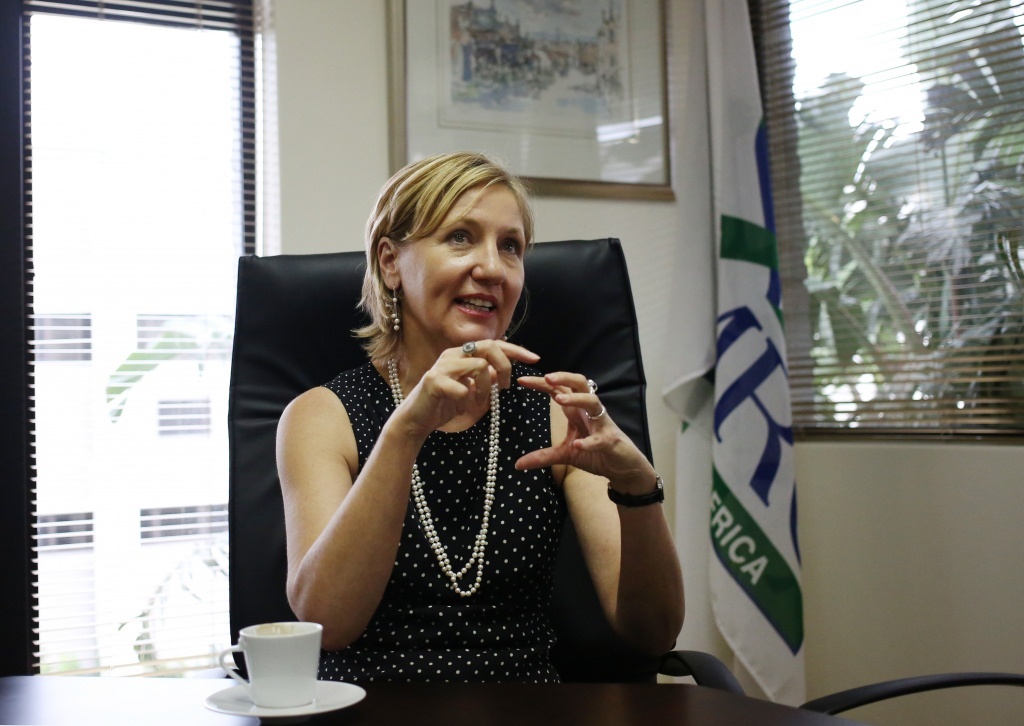
SAMRC board apologises for Prof Gray's comments, bars staff from speaking to media
The SA Medical Research Council (SAMRC) board has apologised to the Ministry of Health and the Ministerial Advisory Committee for recent comments made by its president, Professor Glenda Gray, and says it will institute a fact-finding investigation into the "damage" the comments may have caused.
In a letter signed by chairperson Professor Johnny Mahlangu, seen by News24, the board says it will also bar Gray and other staff from speaking to the media until the matter of Gray's comments is resolved.
This after an interview with News24 in which Gray was perceived to be critical of the government's lockdown approach as "unscientific", a claim she has since denied. In the interview, she claims that there were increased malnutrition cases in children at Chris Hani Baragwanath Hospital.
Gray clarified that she did not criticise the lockdown or the extension of the lockdown, adding that it was in fact critical, but emphasised that her critical comments related to some of the regulations.
In the letter addressed to acting director general of the health department, Dr Anban Pillay, the board said it took great pride in the recognition South Africa had received from the United Nations and the World Health Organisation as a leader in managing the Covid-19 pandemic.
It was also proud of "how the government has based its response on the available scientific data".
"Consequently, the Board distances itself from any negative comments made by Professor Gray associated with how the SA government has managed Covid-19 which have appeared in the media," the letter reads.
"The SAMRC Board fully supports the efforts of the Minister of Health and the Ministerial Advisory Committee. It extends a heartfelt unconditional apology on behalf of the SAMRC for any offence caused, and embarrassment suffered as a result of the comments made by Prof Gray in the media."
Criticism 'worrying'
It said that, with immediate effect, Professor Gray and the staff of the SAMRC were under strict instructions not to interface with the media until all issues relating to Gray's comments are resolved. Mahlangu would take responsibility for media comment in the interim.
"The Board will immediately commission a fact-finding investigation under the direction of an independent expert(s) to guide the Board in determining the nature of the damage done to the SAMRC and the national Covid-19 response as a result of the comments made."
It will then take appropriate action to correct any negative implications if required. The board has also requested a meeting with the department and Health Minister Zweli Mkhize.
The letter was in response to Pillay requesting an investigation into Gray's comments, claiming she had "made a number of false allegations against the government", GroundUp reported last week.
Mkhize also slammed Gray's comments, claiming there were five inaccuracies in her interview. With regards to the malnutrition claims, he said said there had been a reduction in cases of malnutrition at the hospital for March and April compared to the previous four years.
In response, Gray told News24 last week that she felt she was being singled out, adding that Mkhize's criticism was "worrying".
"I spoke in my personal capacity. The terms of reference of the MAC clearly states one is on the MAC in their personal capacity. As I have repeatedly stated, I did not criticise the lockdown," she emphasised.
Gray said she believed that many other scientists had been vocal on the issue and possibly more "vociferous".
READ MORE | I didn't criticise the lockdown, but the regulations - Prof Glenda Gray
More than 180 members of the national and international academic and professional community came out in support of Gray following the request to investigate her, News24 reported on Saturday.
The group condemned the threat against her "for expressing her opinion in public".
Gray is a member of the Ministerial Advisory Committee (MAC) and president of the South African Medical Research Council (SAMRC). She is an expert in infectious diseases, HIV and has training in paediatrics.
- Compiled by Paul Herman